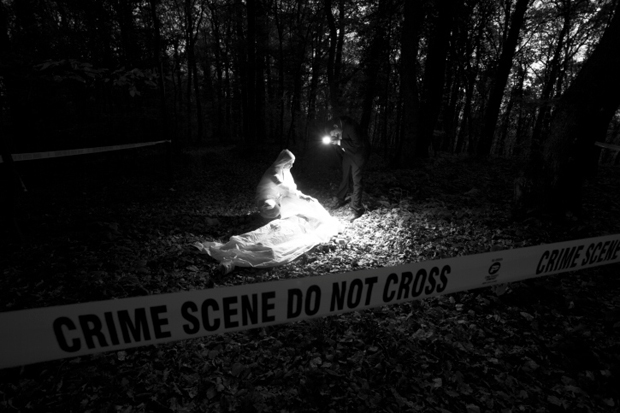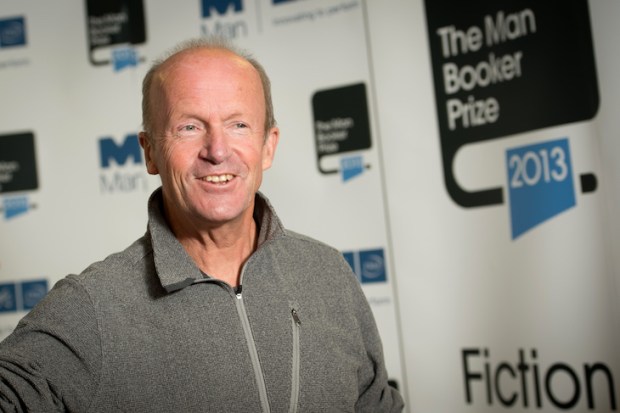‘I’m pleading with you, with tears in my eyes: if you fuck with me, I’ll kill you all.’ When ‘The Bumper Book of American Foreign Policy’ gets written, General James Mattis’s line to Iraqi leaders after the 2003 invasion will be an obvious choice for the cover blurb, but meanwhile it makes a striking epigraph to Bob Shacochis’s furious, sprawling novel about a half-century of US espionage and powerbroking. Like Norman Mailer’s Harlot’s Ghost, Don DeLillo’s Libra and Denis Johnson’s Tree of Smoke, this is the spy story tricked out as the great American novel, vaulting over the conventions of the cloak-and-dagger genre in dogged pursuit of larger questions of the national heart and mind.
That said, The Woman Who Lost Her Soul has its share of disguises, war zones, gunfights, shipwrecks and back-from-the-dead voodoo stunts as well. The book begins in Haiti in 1998 as Tom Harrington, an American human rights lawyer, is lured back to the island to help investigate a woman’s murder. Haiti is familiar territory for Shacochis, who as a journalist covered the military coup against Jean-Bertrand Aristide and the subsequent US invasion, and the chapters of the book set in its ‘landscape of ruination’ among resentful aid workers and grumbling hacks (‘the more cynical among them muttering that the country was too fucked even to throw a good war’) are some of its strongest.
‘Of course, it was not a simple homicide, because it was Haiti,’ Shacochis writes; and when Harrington realises that he knew the dead woman years before under another name, the first of the book’s many narrative switchbacks begins. This is also the point at which Shacochis’s gigantic, complicated novel really begins to resist summary. One of the narrative strands follows the upbringing and adult life of Jackie Scott, aka Dottie Chambers, a stunning blonde (‘I think you are the girl in the American comic book,’ suggests one character in broken English. ‘I am thinking of Supergirl’) from a diplomatic upbringing in Istanbul and America to a series of shady government operations and eventually to Haiti.
Another follows her father, Stjepan Kovacevic, a Croatian refugee who escapes the post-war ruins of Eastern Europe to becomes a sinister, golden US diplomat and spy known as Steven Chambers. A third follows a Delta Force soldier called Eville Burnette, one of the participants in the invasion of Haiti and subsequent imperial machinations, who, despite his name, is actually as close as the book gets to a force for good.
What emerges, as the timelines of these characters blend and intersect over 700-odd pages, is an attempted diagnosis of pre-2001 American intelligence, or, as Shacochis puts it, ‘the slippery algebra of enemies (if the enemy of my enemy is also my enemy, then what?)’. Chambers and his cronies thrash out shady, world-altering deals over games of golf, as their hapless pawns creep deeper into the coils of deception and despair. Beneficent interventionism hardens to dogmatic jihad: ‘It’s cowboys and Muslims, gentlemen,’ observes one smiling politician towards the end. ‘Mount up.’
To Shacochis’s great credit, however, this isn’t a dogmatic book. It’s a forest of smaller stories — family betrayals, war stories, shady espionage deals — that each illustrate the central thesis that ‘we choose the lies in which we participate’. Somewhere in the middle, one character crossly tells another: ‘You know, Tom, you can’t bear witness to every fucking horrible thing.’ Shacochis, however, is trying.
Got something to add? Join the discussion and comment below.
Get 10 issues for just $10
Subscribe to The Spectator Australia today for the next 10 magazine issues, plus full online access, for just $10.
Available from the Spectator Bookshop, £15.99 Tel: 08430 600033
You might disagree with half of it, but you’ll enjoy reading all of it. Try your first month for free, then just $2 a week for the remainder of your first year.














Comments
Don't miss out
Join the conversation with other Spectator Australia readers. Subscribe to leave a comment.
SUBSCRIBEAlready a subscriber? Log in